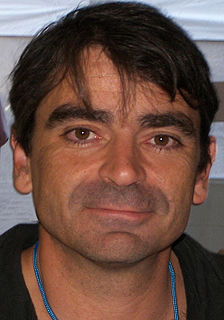A Quote by Romesh Gunesekera
In the sense that writing is to retrieve the past and stop the passing of time, all writing is about loss. It's not nostalgia in the sense of yearning to bring back the past, but recognition of the erosion of things as you live.
Related Quotes
It is not the literal past that rules us, save, possibly, in a biological sense. It is images of the past. Each new historical era mirrors itself in the picture and active mythology of its past or of a past borrowed from other cultures. It tests its sense of identity, of regress or new achievement against that past.
History is the art of making an argument about the past by telling a story accountable to evidence. In the writing of history, a story without an argument fades into antiquarianism; an argument without a story risks pedantry. Writing history requires empathy, inquiry, and debate. It requires forswearing condescension, cant, and nostalgia. The past isn’t quaint. Much of it, in fact, is bleak.
Sentimentality and nostalgia are closely related. Kissing cousins. I have no time for nostalgia, though. Nostalgics believe the past is nicer than the present. It isn't. Or wasn't. Nostalgics want to cuddle the past like a puppy. But the past has bloody teeth and bad breath. I look into its mouth like a sorrowing dentist.
Whether it's writing a monologue or writing standup or writing a screenplay or writing a play, I think staying involved in the creation of your own work empowers you in a way, even if you don't ever do it. It gives you a sense of ownership and a sense of purpose, which I think as an actor is really important.
Writing the past is never a neutral act. Writing always asks the past to justify itself, to give its reasons... provided we can live with the reasons. What we want is a narrative, not a log; a tale, not a trial. This is why most people write memoirs using the conventions not of history, but of fiction.
But the past does not exist independently from the present. Indeed, the past is only past because there is a present, just as I can point to something over there only because I am here. But nothing is inherently over there or here. In that sense, the past has no content. The past - or more accurately, pastness - is a position. Thus, in no way can we identify the past as past
Nine-tenths of the value of a sense of humor in writing is not in the things it makes one write but in the things it keeps one from writing. It is especially valuable in this respect in serious writing, and no one without a sense of humor should ever write seriously. For without knowing what is funny, one is constantly in danger of being funny without knowing it.


































